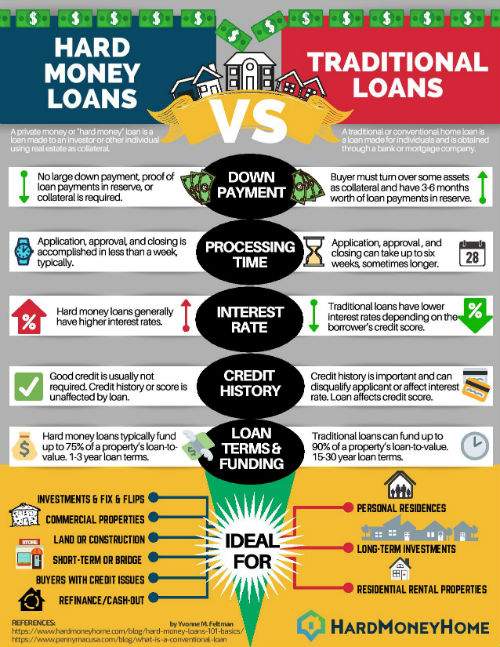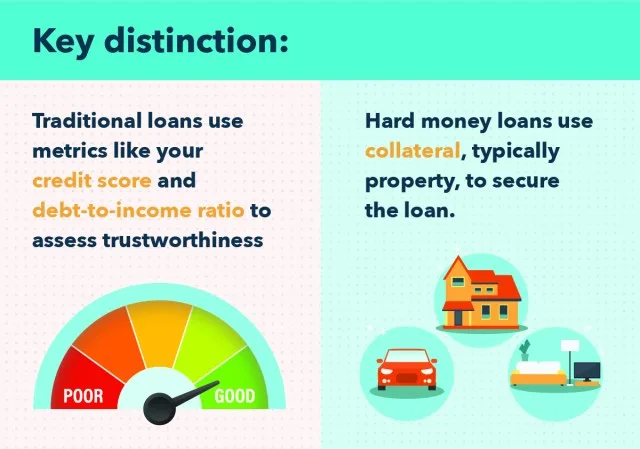When seeking financial assistance through a hard money loan, one cannot help but inquire about the timing of fund disbursement. This article explores the average duration it takes for borrowers to receive funds from a hard money loan, shedding light on the various factors that influence this timeline. Understanding these dynamics can help individuals make informed decisions when considering alternative lending options.
Factors that affect the speed of receiving funds
When applying for a hard money loan, several factors can impact the speed at which you receive the funds. These factors are primarily related to the loan application process and the lender’s underwriting process. Let’s delve deeper into each of these factors to understand their significance and how they can affect the timeline of receiving your loan.
Loan application process
Required documentation
The required documentation plays a crucial role in expediting the loan application process. Lenders typically have a list of documents that borrowers must provide to initiate the loan application. These documents may include proof of income, bank statements, tax returns, identification, and other financial records. Ensuring that you have all the necessary documents ready beforehand will save time and help speed up the process.
Completeness and accuracy of application
The completeness and accuracy of your loan application are paramount in expediting the loan processing time. Any missing or incorrect information can delay the underwriting process and lead to additional back-and-forth between you and the lender. Therefore, it is crucial to double-check your application and ensure that all the details are accurate and complete before submission.
Response time from borrower
Promptly responding to lender inquiries is essential for a smooth loan application process. Lenders may require additional information or clarifications during the underwriting stage. By providing timely responses to these inquiries, you demonstrate your commitment and cooperation, thereby expediting the overall loan processing timeline.

Lender’s underwriting process
Once you have submitted your loan application, the lender initiates the underwriting process. This process involves various steps and evaluations to determine the feasibility and risk associated with approving the loan.
Loan evaluation
During the underwriting process, the lender evaluates various aspects of the loan, such as the loan-to-value ratio, the borrower’s creditworthiness, and the potential for generating profit from the property. This evaluation helps the lender assess the risk involved in the loan and make an informed decision regarding its approval.
Property appraisal
To determine the value of the property securing the loan, lenders often require a professional property appraisal. This appraisal involves an expert assessing the property’s market value, condition, and potential for appreciation. The time required for this appraisal can vary based on factors such as the property’s location and availability of appraisers.
Title search and insurance
To ensure that there are no ownership disputes or other issues related to the property’s title, lenders typically conduct a title search. This search verifies the property’s ownership history, identifies any outstanding liens or encumbrances, and ensures a clear title. Additionally, lenders may require title insurance to protect their interests in case any unforeseen issues arise in the future. The time required for the title search and insurance process can vary depending on the complexity of the property’s title history.
Verification of borrower’s financials
Lenders also verify the borrower’s financials during the underwriting process. This verification involves assessing the borrower’s income, credit history, and financial records to ensure their ability to repay the loan. This step is crucial in determining the borrower’s creditworthiness and mitigating the lender’s risk. The time required for this verification can vary depending on the complexity of the borrower’s financial situation and the availability of required documentation.
Efficient ways to expedite the process
To expedite the loan application and funding process, there are several efficient practices that borrowers can follow.
Prepare all necessary documents beforehand
By preparing all the necessary documents before starting the loan application process, you can save valuable time. Ensuring that you have financial statements, tax returns, bank statements, identification, and other required documents readily available will help streamline the application process and prevent unnecessary delays.
Ensure accuracy and completeness of application
Carefully review your loan application to ensure that all the information provided is accurate and complete. Any missing or incorrect information can lead to delays in the underwriting process. Taking the time to double-check your application before submission can significantly expedite the review process and increase your chances of a swift loan approval.
Provide prompt responses to lender inquiries
During the underwriting process, the lender may request additional information or seek clarifications on certain aspects of your loan application. Responding promptly to these inquiries helps maintain open communication with the lender and signals your commitment. By proactively addressing any additional requirements, you can prevent unnecessary delays and facilitate a faster loan approval.

Average timeline for funding
While the specific timeline for receiving funds from a hard money loan can vary, there are some general stages that typically occur during the loan approval process.
Initial loan approval
Upon submitting your loan application, the lender conducts an initial review to determine its feasibility. This review involves evaluating the borrower’s financials, credit history, and property details. If your application meets the lender’s initial criteria, you will receive an initial loan approval, which serves as a positive indication of the potential loan approval.
Property appraisal and evaluation
After the initial loan approval, the lender may require a property appraisal to assess its value and potential. This appraisal process involves hiring a professional appraiser who evaluates the property’s condition, market value, and potential for appreciation. The time required for this appraisal can vary depending on factors such as the property’s location and availability of appraisers.
Title search and insurance
Simultaneously with the property appraisal, the lender typically conducts a title search to verify the property’s ownership history and ensure there are no outstanding liens or disputes. This process aims to protect the lender’s interests in the property. The timeline for the title search and insurance process can vary depending on the complexity of the property’s title history.
Underwriting and final approval
Once the property appraisal and title search are complete, the lender proceeds with the underwriting process. During this stage, the lender reviews all the documentation, evaluates the borrower’s financials and creditworthiness, and assesses the property’s viability. If all the requirements are met and there are no significant issues or red flags, the lender grants the final approval for the loan.
Closing and funding
After final approval, the closing and funding process takes place. This involves signing the loan agreement, fulfilling any remaining conditions, and transferring the funds to the borrower. The timeline for closing and funding can vary but is typically expedited if the borrower has been proactive in providing all the required documentation and responding to inquiries.
Factors affecting loan application process
Several factors can influence the loan application process, thereby impacting the speed at which you receive the funds. These factors include the borrower’s preparedness, the loan size, and the lender’s efficiency.
Borrower’s preparedness
The borrower’s preparedness plays a significant role in expediting the loan application process. By having all the necessary documentation ready, ensuring the accuracy of the application, and promptly responding to lender inquiries, you can demonstrate your readiness and commitment. This proactive approach can significantly reduce the processing time and increase your chances of receiving funds quickly.
Loan size
The size of the loan can also impact the application process. Larger loan amounts may require more extensive documentation and undergo a more meticulous underwriting process. Additionally, larger loans may require higher levels of due diligence from the lender, resulting in an extended timeline. It is important to be aware of the potential impact of the loan size on the processing time and plan accordingly.
Lender’s efficiency
The efficiency of the lender also affects the speed of receiving funds. Different lenders have varying processes, resources, and capacities, which can result in differences in processing times. When choosing a lender, it is crucial to consider their reputation, track record, and reviews to ensure they have a history of efficient and timely loan processing.

Importance of required documentation
The required documentation is of utmost importance in the loan application process. It provides essential information to lenders, enabling them to evaluate your eligibility and assess the risk associated with the loan. Here are some key documents that are typically required:
Proof of income
Lenders generally require proof of income to assess your ability to repay the loan. This may include recent pay stubs, bank statements, tax returns, and other financial records. By providing accurate and up-to-date proof of income, you instill confidence in the lender regarding your financial stability and increase the chances of a quicker loan approval.
Property purchase details
Details about the property you intend to purchase, such as the purchase price, location, and intended use, are vital for lenders. This information helps them evaluate the property’s potential and determine its viability as collateral. By providing comprehensive and accurate property purchase details, you facilitate the underwriting process and expedite the loan approval.
Credit history
Your credit history provides lenders with insights into your past borrowing behavior and creditworthiness. Lenders may request your credit reports from credit bureaus to assess your creditworthiness and determine the terms and conditions of the loan. Maintaining a good credit history and ensuring the accuracy of your credit reports can significantly expedite the loan application process.
Exit strategy
An exit strategy refers to your plan for repaying the loan. Lenders typically require borrowers to outline how they intend to repay the loan, whether through sale of the property, refinancing, or other means. Providing a clear and well-thought-out exit strategy can instill confidence in lenders and expedite the loan approval process.
Role of property appraisal and evaluation
Property appraisal and evaluation play a crucial role in the underwriting process for hard money loans. Here’s why they are important:
Determining the property value
A professional property appraisal helps determine the market value of the property. This valuation is essential for the lender to assess the loan-to-value ratio and evaluate the potential risk. The accuracy of the property valuation is instrumental in determining the loan amount and terms.
Assessing risk for the lender
Property appraisal and evaluation also help lenders assess the risk associated with the loan. Factors such as the property’s location, condition, and potential for appreciation are considered to determine the level of risk involved. A thorough evaluation enables lenders to make informed decisions and set appropriate loan terms.

Necessity of title search and insurance
In the loan underwriting process, title search and insurance are crucial steps. Let’s understand their significance:
Checking for ownership disputes
A title search aims to identify any ownership disputes or claims on the property. By verifying the property’s ownership history, lenders can ensure that there are no legal issues that could affect their interests. Resolving any disputes or claims before loan approval is essential to protect both the borrower and the lender.
Validating property title
The title search also validates the property’s title, ensuring that it is clear and free from any liens or encumbrances. This step provides confidence to the lender that they have a rightful claim on the property in case of default or foreclosure.
Protecting the lender’s interests
Title insurance provides an additional layer of protection to lenders. It protects them against any unforeseen issues that may arise with the property’s title in the future. By securing title insurance, lenders safeguard their interests and mitigate potential risks associated with the loan.
Closing and funding process
The closing and funding process is the final stage of receiving funds from a hard money loan. Let’s understand the key steps involved:
Signing the loan agreement
At the closing, you will be required to sign the loan agreement, which outlines the terms and conditions of the loan. This agreement serves as a legally binding contract between the borrower and the lender, specifying repayment terms, interest rates, and any other relevant provisions.
Transfer of funds
Once the loan agreement is signed, the lender disburses the funds to the borrower. The funds are typically transferred electronically or through a certified check, depending on the lender’s processes. Upon receiving the funds, you can proceed with your intended purpose, whether it is purchasing a property or investing in a project.
In conclusion, the speed at which you receive funds from a hard money loan depends on various factors, including the loan application process and the lender’s underwriting process. By being prepared, providing accurate information, and promptly responding to lender inquiries, you can expedite the loan application and approval. Additionally, understanding the importance of required documentation, property appraisal, and title search can help you navigate the process more efficiently. By following these best practices and choosing a reputable lender, you can increase the chances of receiving funds quickly and achieving your financial goals in a timely manner.




